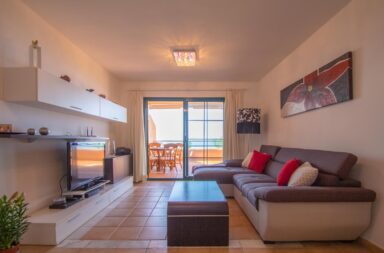Resales of Spanish property remain somewhat sluggish, yet off-plan has taken off and is on full cruise mode.This is reminiscent on how the last property cycle started (1999 – 2007), with off-plan spearheading the recovery and pulling in its wake the resale market. Obviously, market conditions are very different now and no one should expect a huge boom as in the previous cycle.
A traditional indicator of recovery in Spain has been when savvy wealthy Spanish families buy into the market decisively which is indicative of a cycle’s end and the start of a new one as witnessed over the last two property cycles (eighties and nineties). Upbeat macro figures are pointing more and more that we have begun a new growth period.
Hard data suggests we started a new expansionist super cycle in Spain on the 1Q 2018. Year-to-date (first six months), the market has expanded by double-digits in almost every region compared to the same period last year.
Property prices in Spain (confirmed sales) jumped by almost 10% in the first quarter of 2018 according to the latest figures released in May by Spain’s Land Registrars Association.
6 Tips on Buying Off-Plan in Spain
1. Buy-to-let
If you are buying to rent the property out, either as long or short-term, make sure the region of Spain in which you are buying allows for this. Some regions, e.g. Balearic Islands, have stringent regulations whereby a special licence is required for holiday lettings. Failure to comply will result in the town hall fining you. Disgruntled neighbours always make apt whistle-blowers, so be warned. Other regions in Spain, such as Alicante with laxer regulation, do not currently require letting licences.
2. Plot of land under a developer’s name
In the last property bubble, many developers marketed and sold whole developments without owning the land.
One should never buy an off-plan unit in a plot that is not registered under a developer’s name. There are far too many associated risks to take a gamble with your hard-earned money.
3. Building Licence
The basic recommendation is not to sign a Reservation Contract or a Private Purchase Contract (PPC) unless the town hall where the property is located has issued a Building Licence for the development. You should categorically not buy a property that lacks planning permission, it is only basic common sense.
This is by far the biggest mistake that – unbeknownst to many – a buyer can possibly make. Many problems could easily be staved off on following it. The Building Licence will ensure that the building is above board and the property is not being built in green belt land, for example.
4. Bank Guarantees
The instalments paid while the property is being built can be guaranteed by means of what is known generically as a ‘bank guarantee’. In other words, any payments made towards off-plan property that lacks a Building Licence, will be unsecured.
Bank Guarantees are a legal tool devised to secure the interim deposits of prospective off-plan purchasers should their properties not be delivered on time or their developers file for administration. Every payment made towards the property, including the initial holding deposit, should be secured by a bank guarantee.
A bank guarantee is of critical importance, acting as a safety net securing all your stage payments, should the developer fail to complete your property.
5. Licence of First Occupation
A Licence of First Occupancy is a certificate issued by a town hall that confirms that a newly-built property fully complies with all planning and building regulations and is ready to be used as a dwelling. An LFO allows off-plan purchasers to dwell in a property legally. You can read more on this subject in our in-depth article on the Licence of First Occupation.
It is important mainly for four reasons:
- It provides a check on the planning legality. An LFO means the developer has built the dwelling in accordance with the original town hall’s Building Licence as well as with all Planning laws.
- It is required by utility companies to have access to official supplies.
- Lenders will ask for it if you require finance. Banks will also be asking you for a LFO. Even on reselling the property, your buyer may request a copy for his own lender.
- Holiday lettings. If you are looking to buy as an investment (buy-to-let), an LFO is required by Regional Tourist Authorities to rent out your place on a short-term.
Be wary of anyone downplaying the importance of an LFO claiming it is unnecessary. In general, I advise you not to complete without a Licence of First Occupation.
6. NIE number
A NIE number is a Fiscal Identification Number for foreigners and is required, among other things, to buy property in Spain. More details in our article: NIE Number Explained.


